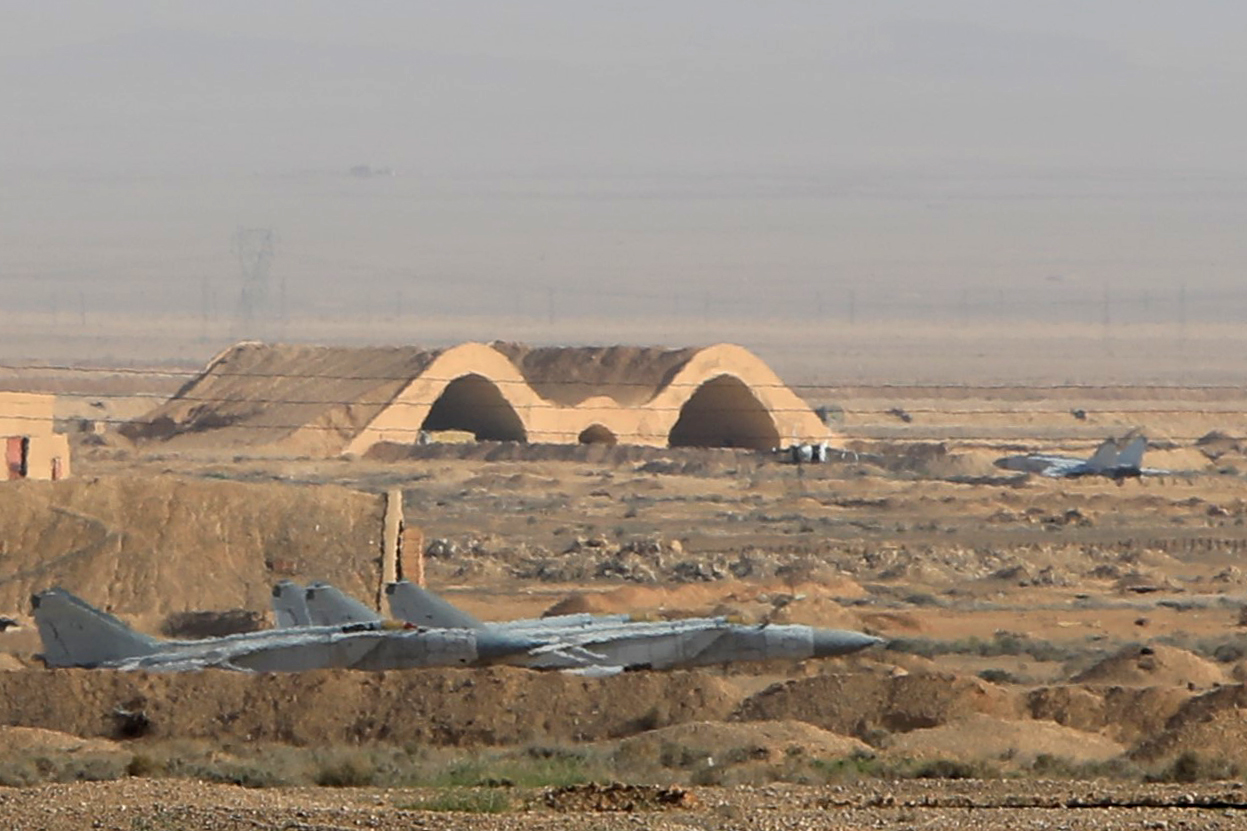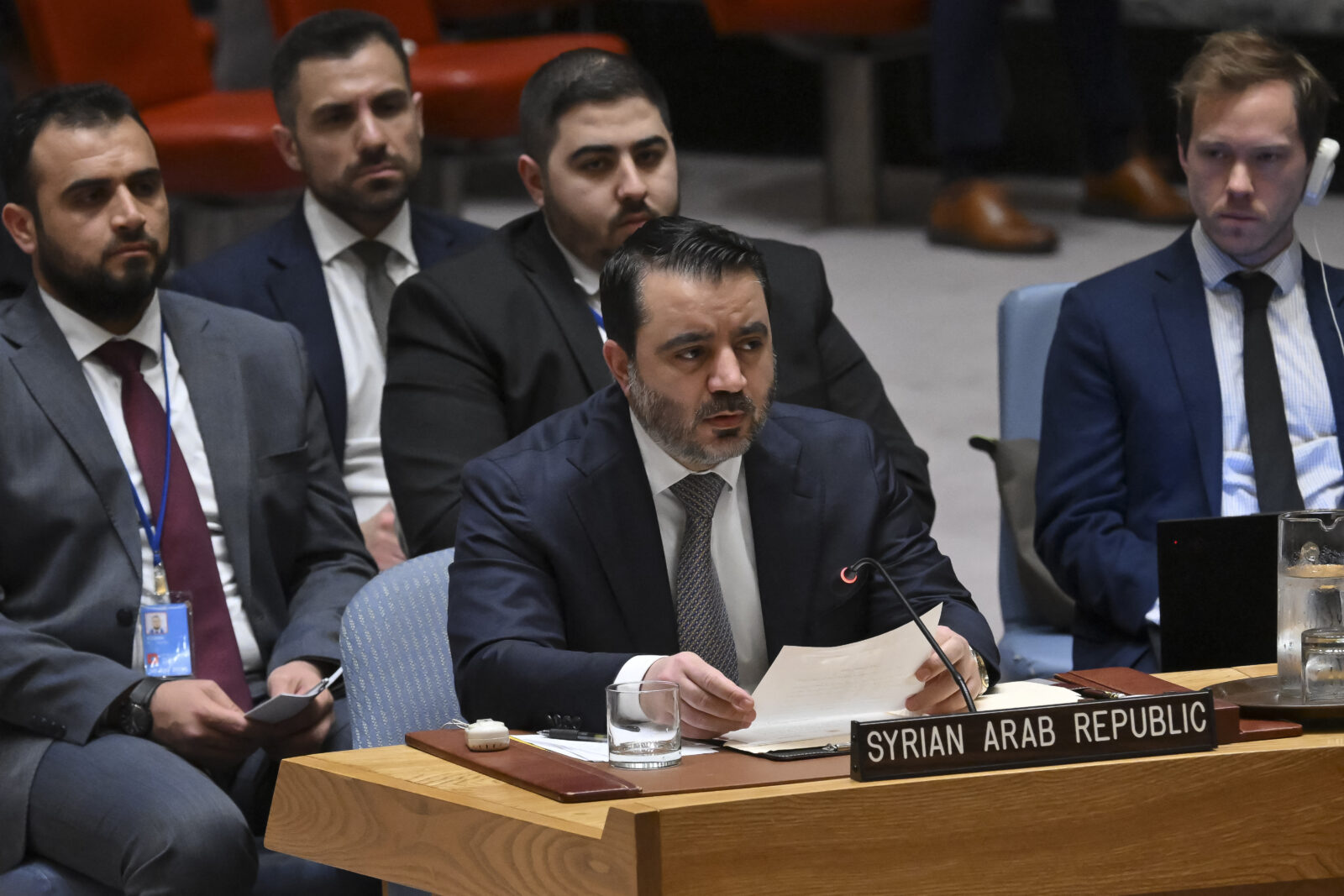
Syrian Foreign Minister Asaad al-Shaibani strongly condemned ongoing Israeli airstrikes on his country, warning that they pose a serious threat to national stability and could enable the return of Iranian-linked militias.
Speaking before a U.N. Security Council session Tuesday on the Middle East, Shaibani outlined recent achievements of Syria’s transitional government formed after the fall of Bashar al-Assad’s regime on Dec. 8 last year.
“We have formed a transitional government with top national talent and representatives from all segments of Syrian society,” he said, adding that it recently won unanimous support from the U.N. Human Rights Council.
Despite major challenges, the government “successfully unified military factions under a constitutional framework and launched a genuine reform program,” he said.
A national dialogue recently brought together nearly 1,000 Syrians at the presidential palace.
Shaibani also said a transitional justice body and an independent commission for the missing are about to be launched and that Damascus is working with international accountability mechanisms and the Organization for the Prohibition of Chemical Weapons (OPCW) to destroy remaining chemical weapons.
“Six months ago, such progress would have been unthinkable,” he said.
Still, Shaibani warned that this national progress is under threat from “repeated Israeli airstrikes, which violate our sovereignty.”
He dismissed Israel’s justifications—tied to foreign-backed armed groups—as invalid.
“These attacks are not only blatant violations of Security Council Resolutions 242 and 497, they destroy our civilian infrastructure and risk returning Syria to the militants we’ve fought 14 years to overcome,” he said.
Resolution 497, passed in 1981, demands that Israel rescind its de facto annexation of the occupied Golan Heights. Resolution 242 (1967) calls for Israel’s withdrawal from territories occupied in the Arab-Israeli War, including the Golan Heights, the West Bank, the Gaza Strip and the Sinai.
Israel’s near-daily airstrikes since Assad’s fall have killed civilians and damaged Syrian military sites, despite the new administration under President Ahmed al-Sharaa posing no threats.
Shaibani emphasized that Syria’s Christians, Kurds, Alawites, Druze and Arabs reject foreign interference and Israel’s attempts to portray Syria as divided, noting that even Syrian Jews oppose these policies.
Israel’s claims of protecting Syrian Druze are a pretext for violating Syrian sovereignty, Damascus asserts.

Shaibani warned that Israel’s expansionist approach, exaggeration of threats and disregard for regional security will drag the region into further violence and instability.
“Israel’s actions create a fertile environment for Iran-linked groups to destabilize Syria,” he said, urging decisive action to deploy disengagement forces in the buffer zone.
The Israeli army occupied the demilitarized zone in the Golan Heights in early December, violating a 1974 Disengagement Agreement with Syria in a move that expanded Israel's control over the territory.
Shaibani relayed the frustration of the UN Disengagement Observer Force (UNDOF), which feels powerless due to Israel’s obstruction, and reiterated Syria’s demand for the full implementation of Resolution 497 to restore pre-June 4, 1967 lines.
On Gaza, Shaibani affirmed Syria’s support for Palestinians enduring relentless airstrikes, a suffocating blockade, deliberate starvation and attacks on medics and journalists, which violate fragile cease-fires, he said.
“These violations not only cause a humanitarian tragedy but also perpetuate regional instability,” he warned, demanding an immediate ceasefire to protect Gaza’s civilians and ensure unrestricted humanitarian aid.

Shaibani also called on the UN and the global community to lift sanctions on Syria, which now punish the former regime’s victims and block access to materials, funding and services essential for reconstruction, he said.
He noted that sanctions and devastation discourage refugees from returning, a cornerstone of recovery.
He urged the Council to back justice mechanisms, develop a coordinated reconstruction vision, open trade pathways, and ensure a safe, dignified return for refugees.
Assad, who ruled Syria for nearly 25 years, fled to Russia in December, ending the Baath Party’s decades-long rule that began in 1963.
A transitional administration was formed in late January, dissolving the constitution, security services, armed factions, parliament and the Baath Party.